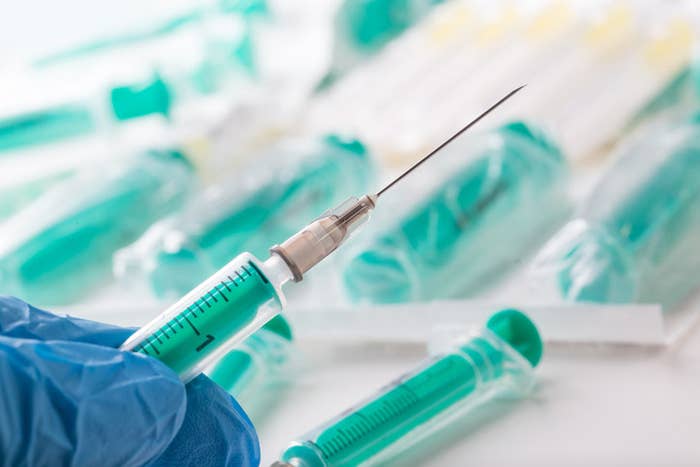
In the eight years since the human papilloma virus (HPV) vaccine was introduced in Scotland, the levels of the cancer-causing virus in the country have dropped by 90%, according to a study being presented at a conference today.
Cancer Research UK called the findings "encouraging".
Dr Kevin Pollock and his team looked at the levels of HPV in women born in 1995 and compared them with those from women born in 1989 and 1990, before the introduction of the vaccine.
They found that only around 1 in every 200 women born in 1995 had the two most high-risk forms of the virus, compared with more than 1 in 5 from the older group. The vaccine also protected against another three variants of the disease. The five types of virus between them cause about 90% of the cervical cancer cases in Scotland.
"It's a good-news story," Pollock told BuzzFeed News. "The vaccination programme started in 2008 and we've been vaccinating girls every year. We've had a 90% uptake – we're very happy.
"As well as cervical cancer [HPV] causes certain vaginal and head and neck cancers, and other abnormalities."
He says that the reduction in HPV levels should translate directly into a drop in the levels of cancer. "If you look at cervical cancer in Scotland, you get about 300 cases a year," he said. "If you look at the individuals, 90% of their cancers have these viruses in them.
"So in future, instead of 300 cases, we might be seeing 30."
Girls in the UK are given the HPV vaccine at age 11 or 12. Scotland currently screens women for HPV at 20, whereas England and Wales screen them at 25, so equivalent data for those two countries won't be available until 2022.
But, said Pollock, the HPV vaccination programmes began at the same time in all three. "We're providing the pioneer results for this vaccine," he said. "You can see in Scotland what you'll see in England and Wales in five years."
Since the data was collected, Scotland has changed its protocols to screen at 25, in line with the rest of the UK.
Pollock added that the data showed that the vaccine had been extremely safe. "As well as the efficacy study, we've got the adverse event monitoring," he said. "We can link vaccination data to hospital data. So if we'd seen an increase in some cancer or some autoimmune disease after vaccination you could say 'this vaccine isn't safe'. But we've seen nothing, after 300,000 doses."
Dr Jasmine Just, Cancer Research UK’s health information officer, said: “Having the HPV vaccination, along with regular cervical screening from age 25, is the best way of reducing the risk of cervical cancer.
"It’s encouraging to see these early signs that the vaccine is working. There are lots of reasons to take up the offer of free vaccination, but ultimately it’s up to the individual.”
